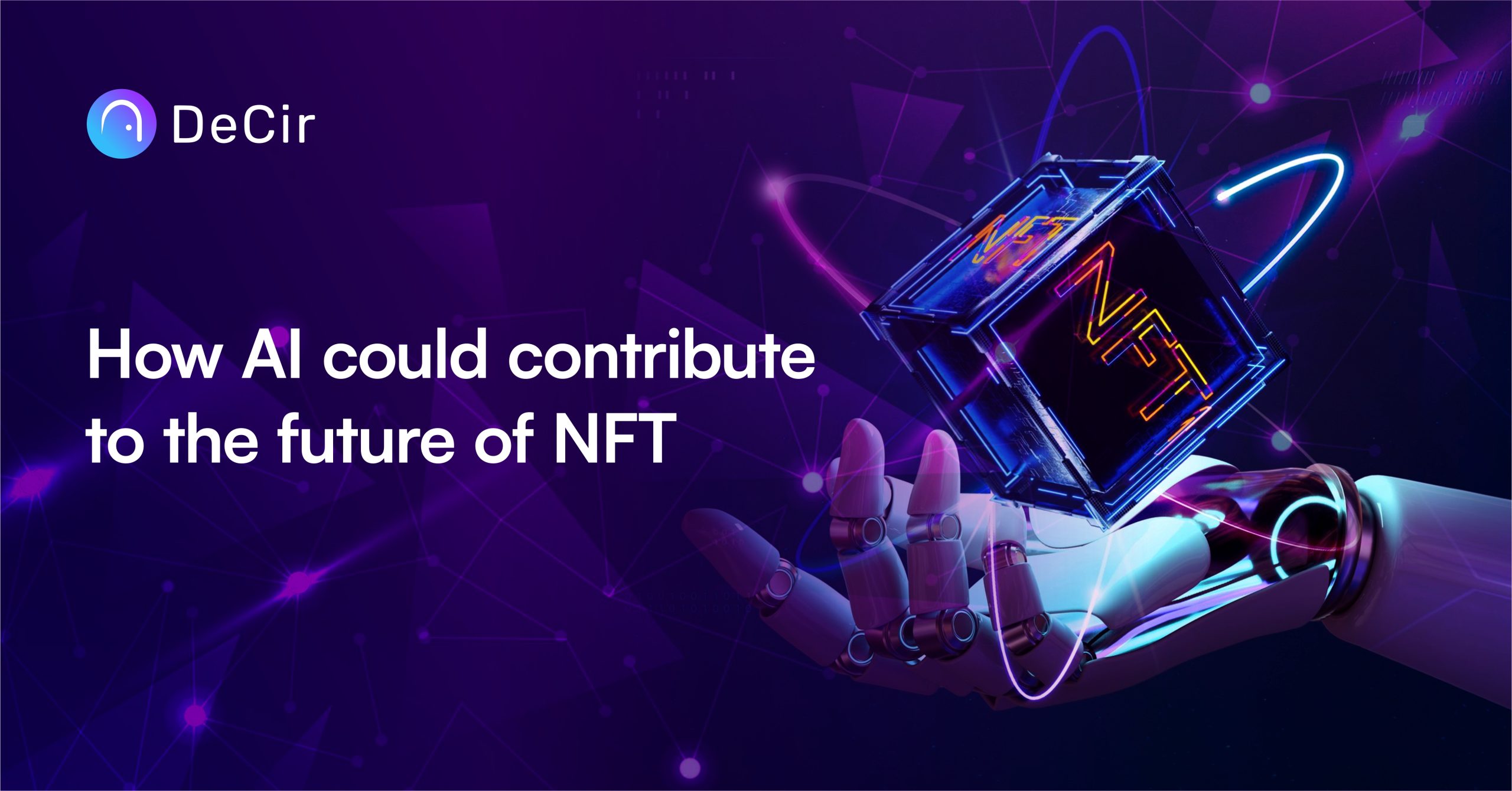Non-fungible tokens (NFTs) have gained significant traction in recent years, revolutionizing the digital art and collectibles market. As this technology continues to evolve, the integration of artificial intelligence (AI) presents exciting possibilities for the future of NFTs.
TL;DR
- AI can generate original digital art, verify authenticity, and enhance curation and recommendation systems.
- AI-powered models can provide accurate valuations based on artists’ reputations, market trends, and historical sales data, helping artists and collectors make informed decisions.
- AI integration in NFT marketplaces improves search, introduces reputation systems, and enhances security.
Content Generation and Creativity
AI can have a significant impact on NFT content generation and creativity. AI algorithms can generate unique and original digital artworks, pushing the boundaries of artistic expression.
By leveraging machine learning techniques, AI can learn from existing art pieces, analyze patterns, and produce new creations that align with an artist’s style or a specific theme. This fusion of human creativity and AI’s computational power can lead to a myriad of novel and captivating NFTs.
Authenticity Verification and Provenance
One of the fundamental challenges in the NFT space is verifying the authenticity and provenance of digital assets. AI can play a crucial role in addressing this issue. By employing computer vision and image analysis algorithms, AI can detect and track unique characteristics within a digital artwork, creating a verifiable digital fingerprint.
This can ensure that NFTs remain tamper-proof and that their origin and ownership can be reliably traced, enhancing trust and transparency in the ecosystem.
Curation and Personalized Recommendations
Discoverability is vital in the vast marketplace of NFTs. AI-powered recommendation systems can help users navigate this space by providing personalized suggestions based on their preferences, past interactions, and browsing history.
Also read: The top 3 challenges facing global creators
By analyzing vast amounts of data, AI algorithms can identify patterns, understand user behavior, and curate tailored recommendations. This can improve the overall user experience, increase engagement, and facilitate the exploration of new and exciting NFTs.
Pricing and Valuation
Determining the value of NFTs can be challenging due to various factors such as artist reputation, scarcity, and market trends. AI-based pricing models can leverage data analytics and historical sales data to provide more accurate valuations.
These models can consider factors like an artist’s previous sales, social media engagement, and market demand to offer insights into fair pricing. Such AI-powered pricing mechanisms can benefit both artists, who can better understand the worth of their creations, and buyers, who can make more informed investment decisions.
Enhanced NFT Marketplaces
AI can revolutionize the NFT marketplace experience by introducing innovative features and functionalities. Intelligent search algorithms can help users navigate through a vast collection of NFTs, filtering based on specific criteria such as style, artist, or genre.
AI-powered marketplaces can also incorporate reputation systems where users can rate and review artists or sellers, providing valuable feedback to the community. Additionally, AI-based escrow systems can streamline transactions and enhance the security of NFT exchanges, mitigating potential fraud or disputes.
Interesting article: How do soulbound tokens work?
Conclusion
The future of NFTs holds immense potential, and the integration of AI technologies can unlock new opportunities for artists, collectors, and enthusiasts. AI’s ability to generate unique content, verify authenticity, curate personalized recommendations, determine fair pricing, and enhance marketplaces aligns perfectly with the needs of the NFT ecosystem. By leveraging AI, the NFT industry can continue to flourish, fostering creativity and innovation in the digital art and collectibles market.


